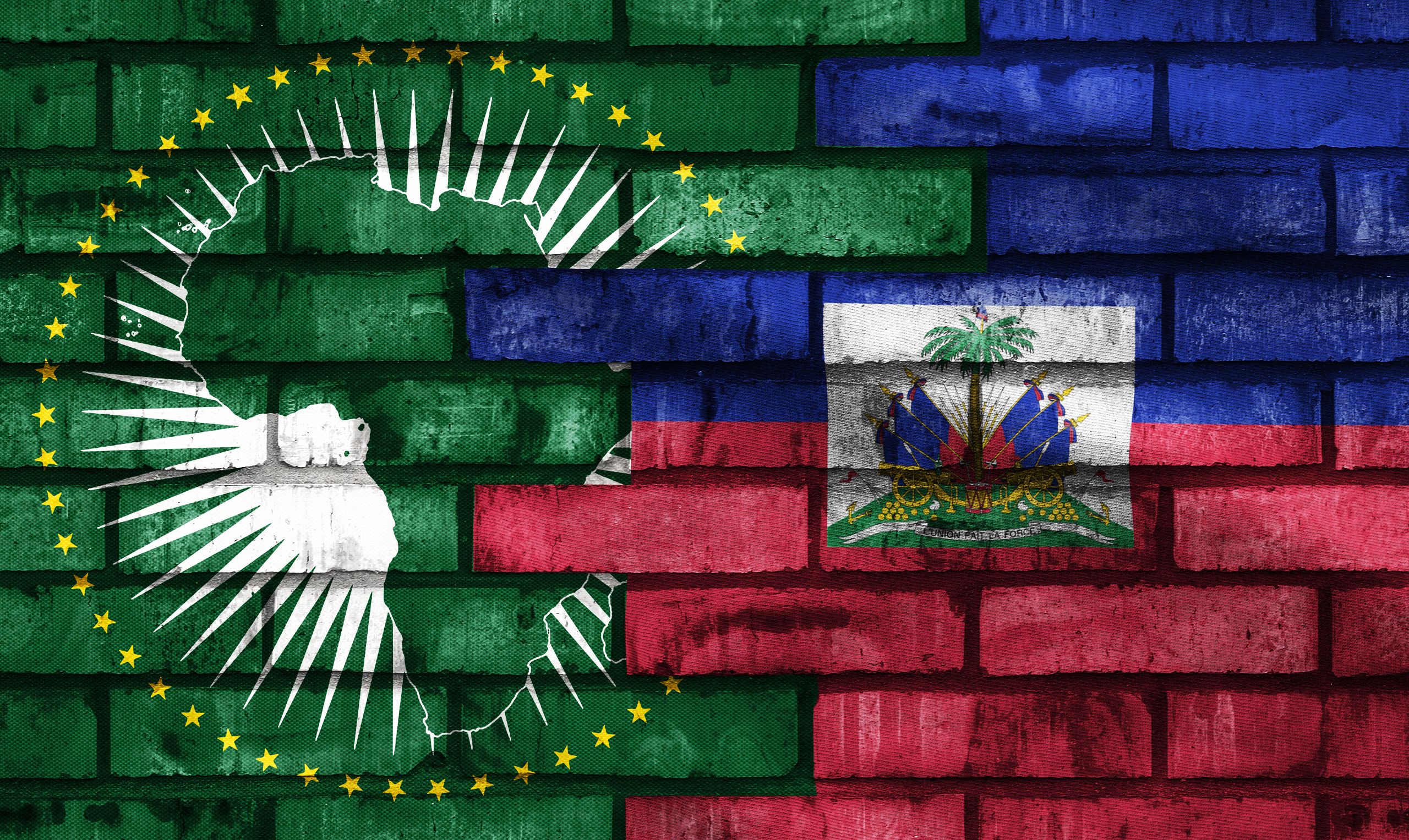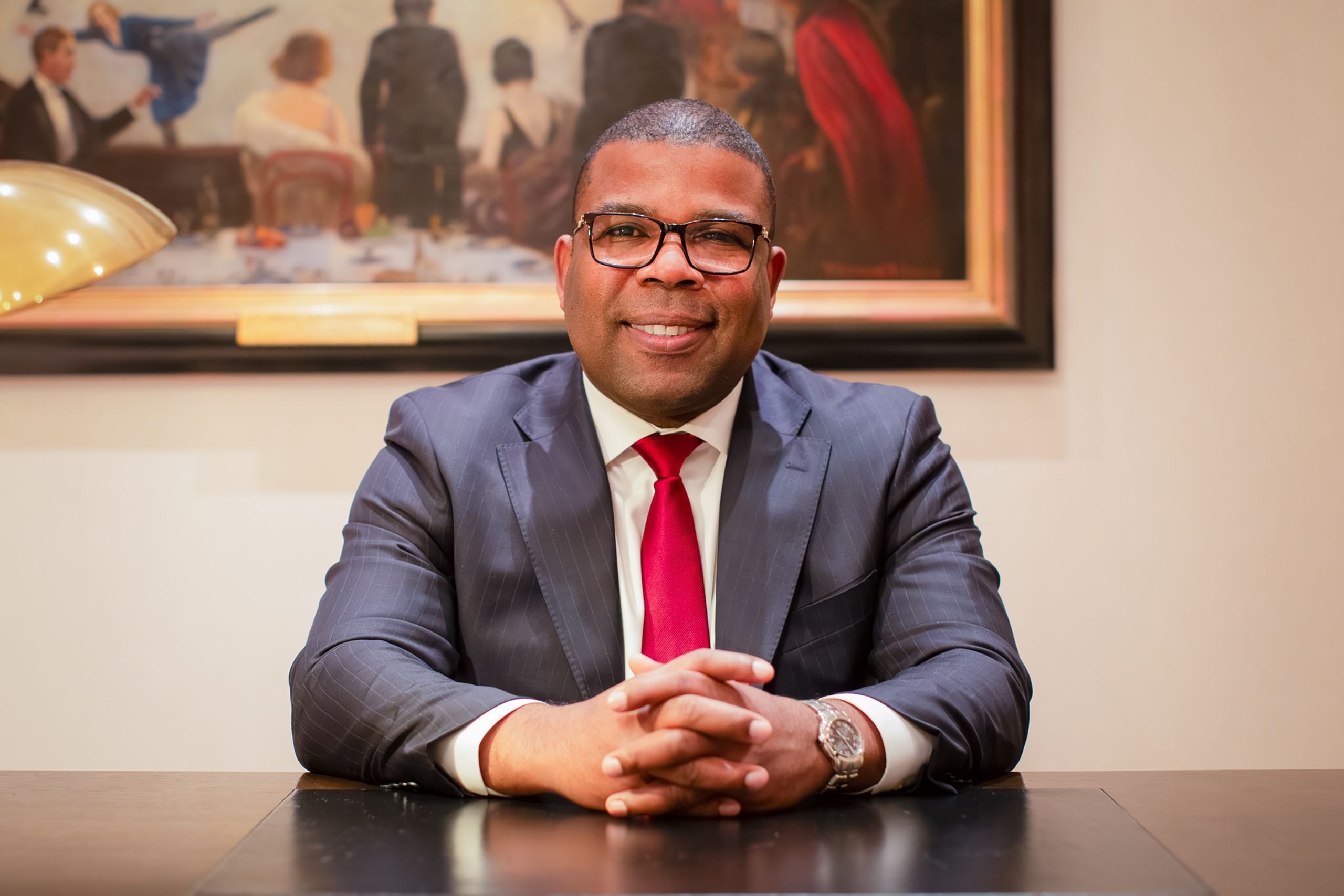Haiti and Africa
Former Head of Mission of the Embassy of Haiti to Great Britain and Northern Ireland, Jean R. Pillard, discusses a strategic reunion for the twenty-first century

Haiti: The First Land of African Resistance in the New World
For over 500 years, Africans have shaped the land known today as Haiti. Forced onto its shores in chains, they transformed it into the first free Black republic, proving that no empire could break their will. Haiti and Africa have never been separate — their destinies have always been one.
Haiti – a land once condemned to servitude – became a land of defiance and liberation. For over a century, its people resisted, refusing to be broken. Then, in 1804, Haiti shattered the chains of colonialism, becoming the first free Black republic — an unthinkable revolution that redefined history.
Haiti’s revolution was the first victorious African rebellion against European rule. It sent shockwaves across the Atlantic, inspiring anti-colonial movements from Latin America to the Gold Coast, from the Caribbean to the heart of Africa.
Yet, despite this revolutionary legacy, Haiti has often stood alone — isolated by a world that feared the power of its defiance.
Today, that isolation must end. Haiti’s place is not on the margins of history — it is at the centre of Africa’s future.
The Symbols at the Citadelle Laferrière: A Message Across Time
The connection between Haiti and Africa is foundational. Haiti was not merely influenced by Africa — it was created by Africans who, against unimaginable odds, built the first free Black Republic. The Haitian Revolution was not just an uprising; it was an African-led war for liberation, fought and won on Caribbean soil.
At the Citadelle Laferrière, Haiti’s fortress of independence, inscribed upon the bronze cannons, are sacred African markings — the Mpata-Ozo, the Octahedral Noble Stool. These were not just symbols, but signatures, and reminders that those who forged Haiti carried their heritage with them, even in exile.
The Citadelle stands as a testament to Africa’s enduring strength. Its foundations were laid by those who refused to remain enslaved, and its walls rise as a declaration that Haiti was, and remains, an African creation.
These symbols are a call to remembrance, to unity, and to a future where Haiti and Africa stand together once more. The time has come to answer that call.

Haiti must actively integrate into Africa’s future, becoming a key partner in its economic, political, and cultural renaissance.
Haiti’s Strategic Integration into Africa’s Agenda 2063
Today, Africa is an economic powerhouse — home to the fastest-growing economies, the world’s largest free trade zone, and the youngest workforce, with over 60 per cent of its population under the age of 25.
Agenda 2063 is the African Union’s strategic framework for transforming the continent into a united, prosperous, and globally influential force, driven by economic integration, industrialisation, and sustainable development.
Haiti’s diplomatic presence in Africa is already established, with embassies in various countries and observer status at the African Union (AU). But presence alone is not enough. Haiti must actively integrate into Africa’s future, becoming a key partner in its economic, political, and cultural renaissance.
1. Economic Integration: A Seat at the Table in the World’s Largest Market
Africa is expected to have a combined GDP of $29 trillion by 2050. Haiti cannot afford to be left behind.
The African Continental Free Trade Area (AfCFTA) is set to become the largest single market in the world, covering 1.4 billion people and unlocking a $3.4 trillion economic opportunity. Haiti must not only access this market but actively engage with it. By partnering with Africa’s industrial leaders, Haiti can strengthen its own production capabilities, expand exports, and create new economic opportunities for its people:
• Agriculture & Industry. Haiti’s coffee, cocoa, cassava, and essential oils could find direct trade routes into Africa’s expanding food and wellness industries.
• Energy & Infrastructure. African nations, particularly Nigeria, South Africa and Egypt, are at the forefront of renewable energy, smart infrastructure, and transportation networks. Strategic partnerships could revolutionise Haiti’s energy sector, reducing dependence on foreign fuel imports.
• Technology & Digital Innovation. Africa’s fintech industry is leading the world in mobile banking and digital finance. Haiti could adopt Africa’s technological leapfrogging model to expand its digital economy, connecting businesses and youth entrepreneurs to global markets.
2. Diplomatic and Political Leverage: Strengthening Haiti’s Global Position
By 2050, Africa will represent over 25 per cent of the world’s population. Haiti must be part of this global shift in power.
Haiti has been subjected to centuries of economic and political interventions that have limited its global influence. Aligning with Africa would fortify Haiti’s diplomatic power and provide new geopolitical alliances.
• AU Membership and Strategic Alliances. Haiti must deepen its engagement with the African Union — not just as an observer, but as a strategic bridge between Africa and the Caribbean. A formalised AU-CARICOM economic framework would unlock greater trade, investment, and policy collaboration, benefiting Haiti and the wider region.
• Leveraging Africa’s Global Influence. African nations have secured stronger positions within international bodies like the United Nations, WTO, and G20. Haiti, through African partnerships, can amplify its voice on global issues, including trade justice, climate change, and economic development.
• A United Front for Fair Economic Policies. Haiti and Africa share a history of resource exploitation and financial challenges. A strengthened Haiti-Africa alliance would provide greater negotiation power in shaping fairer global economic systems.
3. Cultural and Historical Reconnection: Completing the Circle
Over 200 million people of African descent live outside Africa. It is time for the diaspora to return home — not just physically, but strategically.
Haiti is the beating heart of Africa in the Americas. Its language, music, and spirituality all descend directly from African traditions.
• The Citadelle as a Global African Heritage Site. The Igbo markings found on its cannons prove that Haiti’s revolution was part of Africa’s greater struggle. The AU and UNESCO should recognise the Citadelle as a sacred pilgrimage site, where Africans and Haitians alike can reconnect with their shared past.
• Vodou and Ancestral Ties. Haiti’s spiritual foundation has deep connections to Benin, Nigeria, and Ghana. A formal cultural partnership would ensure the preservation and global recognition of these traditions.
• Youth & Educational Exchange. Haiti’s young people must see Africa not as a distant continent, but as a home and opportunity. Scholarships, student exchanges, and joint academic research will build the next generation of Haitian African leaders.
Conclusion: Answering the Call of History
The symbols on the Citadelle’s cannons were a message — a challenge to the future, calling us to complete the journey our ancestors began. Haiti’s return to Africa is a necessity. Africa is rising, and Haiti must rise with it. Not as a dependent, but as a partner. Not as a forgotten son, but as an equal. The question is no longer if Haiti should align with Africa. The question is: will we claim the future that was always meant to be ours?
Jean R. Pillard is a diplomat, global strategist, and advocate for economic and cultural diplomacy with over 30 years of experience in international relations, investment facilitation, and cross-continental development. As CEO of Crosswave Global Partners, he advises high-level leaders across Africa, Latin America, and Europe, building strategic alliances that promote sustainable growth and global cooperation.
He previously served as Head of Mission at the Embassy of Haiti to Great Britain and Northern Ireland, where he helped rebuild ties after nearly 50 years of severed relations. During his tenure, he strengthened Haiti’s engagement with the UK Parliament and secured Haiti’s inclusion in the Latin American and Caribbean Group (GRULAC) in London.
Mr Pillard is widely recognised for his work in connecting African nations with global markets and investors. His landmark speech, “Bridging Waters: From Haiti to Africa, A Journey Home,” delivered in Owerri, Nigeria, underscored the profound historical and economic connections between Africa and the Caribbean.
He is the founder of the Life Skills Haiti Foundation, which empowers young Haitians through education and leadership development. Jean R. Pillard remains committed to ensuring that Haiti, Africa, and the global South have a strong voice in shaping the world’s future.

